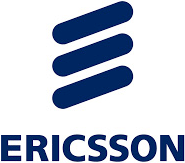Do You Really Need A Survey Company?
When business owners, executives, and managers want to learn more about their customers’ experiences, it is not uncommon for them to ask customers for their insight by writing and issuing a survey. Taking initiative in this manner is admirable, but these individuals are often too close to the issue to ask the right questions and glean the most from the customers’ responses. In such instances, enlisting the guidance of a credible survey research company is beneficial.
A professional customer survey company will first work with you to understand your business, products or services, and customer base. Next, they will use their knowledge of applied research and experience to formulate questions that lead to actionable input from survey participants. Additionally, experts who are trained in analyzing customer survey responses have the ability to gather a more truthful and helpful body of evidence from the survey than a person who is focused on running his or her business and increasing profits.
A major problem when managers attempt to understand their customers’ or employees’ experiences by writing and conducting surveys themselves is that they can’t distance themselves from their own experiences. As a business executive or boss, you have distinct values, desires, and motivations which your customers or employees may not share. Because of this, it is difficult for you to see things from their perspectives.
Empathy isn’t Always Best
An article featured by the Harvard Business Review called “Putting Yourself in the Customer’s Shoes Doesn’t Work” illustrates this point beautifully. Here, the author interviews Johannes Hattula of Imperial College regarding a battery of experiments designed to understand the value of empathy in marketing. Hattula and his colleagues encouraged marketing managers of varying levels of experience to feel empathetic by describing typical customers and predicting their experiences in relation to specific products or offerings. The researchers found that the more “empathetic” these marketing managers became, the more likely they were to project their own desires onto the imagined customers.
According to Hattula, “The more empathetic managers were, the more they used their personal preferences to predict what customers would want. Another key finding that should get people’s attention is that the more empathetic the managers were, the more they ignored the market research on customers that we provided them.”
Hattula and his team found that the managers even projected their own preferences onto the customers when the customers were in an entirely different demographic from their own. For example, when they were asked to imagine students in a sandwich shop, these managers could not help but imagine themselves in that situation rather than focusing on what the students might want. Interestingly, the seasoned marketing managers were just as likely to impose their preferences on the imaginary customers and ignore the research presented about those customers as the managers who had only been in the job for a short time.
Hattula’s research suggests that, while most people consider empathy to be a strong value when it comes to dealing with others, the truth is that too much empathy can skew a person’s ability to view a situation objectively.
Conflicts of Interest
Even if a business manager were completely without empathy, which Hattula says is impossible (and which would make for a truly miserable human being who should never interact with customers), a customer survey company can ensure accuracy and objectivity. The Huffington Post featured an article online called “Why Customer Surveys Might Not Be Accurate”. Here, the author says that most customer survey results are inaccurate because employees often influence customer responses.
Most consumers have come across this at least once. You have a negative customer service experience and make your grievance known to a company representative. In many cases, you will be given a coupon for a free item with your next purchase before being asked to evaluate and report on your experience. Thus, the company representative has essentially bought a more positive response than the one you would have given if you hadn’t been made complacent with the coupon.
In other instances, employee influence on survey results is much more direct. In the Huffington Post article, the author describes a situation where he took his sports car in for routine maintenance at the dealership. Before picking up his keys to leave at the end of the visit, he was (as always) asked about his experience and whether he feels he “received a good value” for his money. When he answered in the negative because he believes the prices of luxury vehicles are exorbitant, he was called by the service representative from the dealership and asked to answer differently in the future because his negative responses reflected poorly on that representative to his bosses.
Most consumers can relate to this experience with their own story about how an employee asked them for the “favor” of a good review so they would not get a poor mark or lose a bonus. Instead, the author suggests, reward employees who routinely do good work or who have been singled out by pleased customers to ensure a more genuine experience for all involved. Rather than allowing your customers to feel put upon by employees willing to influence survey responses for their own purposes, why not work with an independent survey company with whom your customers can be honest? This is a more comfortable experience for your customers and it will help you gather much more useful data.
Get the Truth from your Employees
Just as a customer may be made to feel uncomfortable and less inclined to be honest about a negative experience when speaking with a representative of your company, an employee will likely not be honest if you question him or her directly about the workplace experience. This makes sense: if an employee had a problem with a policy you put in place, would it behoove that person to jeopardize his or her position by telling you? While most employees know that retaliation for a negative review is illegal, they also know that bosses and co-workers can make their lives very uncomfortable while still remaining outside the definition of “retaliation”.
Some business managers who understand that employee survey responses will be more truthful when they don’t personally ask the questions attempt to solve the problem by asking other employees to interview their co-workers. However, your employees may be tempted to change responses made by co-workers if they reflect poorly upon themselves.
To get truthful, accurate, and useful responses from your staff, it is best to work with an employee survey company. Professional employee survey administrators know how to phrase questions and administer surveys in a way that will put your employees at ease and encourage them to give honest yet constructive responses.
Honest, Effective Surveys
Something that many business owners tend to lose sight of is that conducting the survey is only the beginning of the process. Yes, it is vitally important to write survey questions that illicit an honest response. However, it is also important to reap the maximum benefit from those responses by properly interpreting them and then taking action to improve your organization.
When a manager receives hundreds or even thousands of responses to customer or employee surveys, deciphering them can be daunting to say the least. In addition to simply reading survey responses, these responses are only helpful if they are analyzed in such a way that provides real and actionable insight into the customer and employee experience. With deep experience in behavioral psychology, each member of our professional survey team at NBRI has the knowledge and insight necessary to interpret the meaning of survey responses and to help businesses translate these answers into effective solutions.
The goal of a customer or employee survey is not simply to learn more about what your customers or employees think about you, your products, or the experience you offer. When you issue and interpret the survey yourself, it is easy to become focused on the feedback and how it personally affects you. The true goal is to improve your business or products as well as the customer or employee experience you provide. With an objective professional survey from NBRI, you will be assured of an efficient and effective survey process and measurable results.




























 By submitting this form you agree to our
By submitting this form you agree to our